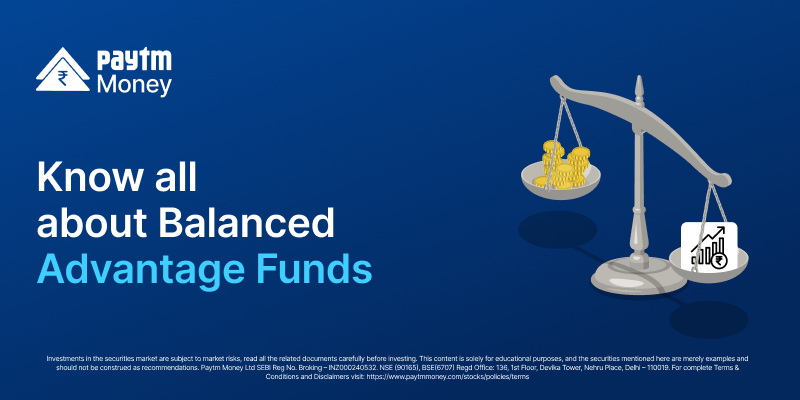The Art Of Balancing Portfolios, Made Easy4 min read
Have you ever had sleepless nights, especially during market corrections, thinking about whether your portfolio is balanced enough or not? Should you shift your equity exposure to Debt and how much?
Every investor, whether it is Warren Buffett or a common investor like us, has always struggled to create a balanced portfolio that can weather all storms. But, very few get there. Does that mean we don’t have those skills or intent to balance our portfolios?
Well, not exactly. As they say, there is no such thing as a right time to enter markets, the same goes with asset allocation. As a common investor, many fundamental and technical parameters need to be processed and the biggest of them all is the sentiment or the emotional balance in investing.
How can retail investors like us balance our portfolios?
No, you have better and ‘ ready-made’ options to balance your portfolio. You simply need to choose one carefully and let fund managers and the market do their job.
In this blog, you will understand the simplest option, commonly known as Balanced Advantage Fund (BAF).
A BAF is a type of mutual fund that dynamically allocates your fund between equity and debt instruments, keeping in mind that always 65% or more is in equity or equity-related instruments (Derivative instruments, mainly for hedging or slightly safe option premium eating.)
Decoding Balanced Advantage Fund
Balanced Advantage Funds are a type of mutual fund that can be chosen by an investor when they are not sure of the market direction or do not have enough time or knowledge to do asset allocation themselves.
Or, simply, if they want to delegate the decisions to enter or exit the market to a professional fund manager.
How do fund managers balance portfolios?
Fund managers have built their models which predict whether they should allocate heavily or lightly towards equity. These models are time-tested and use tools like PE ratio, GDP growth, Nifty EPS, moving averages etc.
In times of over-valuation of equity markets, they hedge the equity holding by selling the Future contracts to maintain the 65% equity-related instruments mandate and safeguard against a market fall and sometimes to earn cash for future arbitrage return.
So, an investor does not have to worry about shifting the portfolio from equity and debt, as the fund manager takes care of this process.
Should we take past returns into account?
Past performance is no guarantee of future results and investment in markets. Mutual funds have a potential risk involved. Balanced Advantage Funds maintain a balanced portfolio so in times of aggressive bullish market they may underperform the broad indices and in falling markets the downside may be lower than that of equity markets. Let’s see the chart below:

In the Nifty 50 vs HDFC Balanced Fund-Growth comparison chart above, there are 4 spots marked where Nifty fell much more than the Balanced Advantage Fund because the fund might have had higher debt allocation and hedged Equity portfolio.
This signifies the cushion given by BAF in falling markets.
Now, let’s see the chart below:

In the comparison of HDFC BAF vs Nifty 50 above, you can see that in Super bullish markets, equities will always outperform BAF funds.
So BAF cannot be the only component in one’s portfolio and will act as a Balancing asset for the portfolio.
Differences in a glance

To summarize, BAF is a good investment option for starters who have moderate risk-taking capacity and for those who do not want to adjust portfolios themselves.
Happy Investing!
Disclaimer: Investments in the securities market are subject to market risks, read all the related documents carefully before investing. This content is purely for information purposes only and in no way to be considered as advice or recommendation. Paytm Money Ltd SEBI Reg No. Broking – INZ000240532. NSE (90165), BSE(6707) Regd Office: 136, 1st Floor, Devika Tower, Nehru Place, Delhi – 110019. For complete Terms & Conditions and Disclaimers visit: https://www.paytmmoney.com. The securities are quoted as an example and not as a recommendation. Brokerage will not exceed the SEBI prescribed limit.




